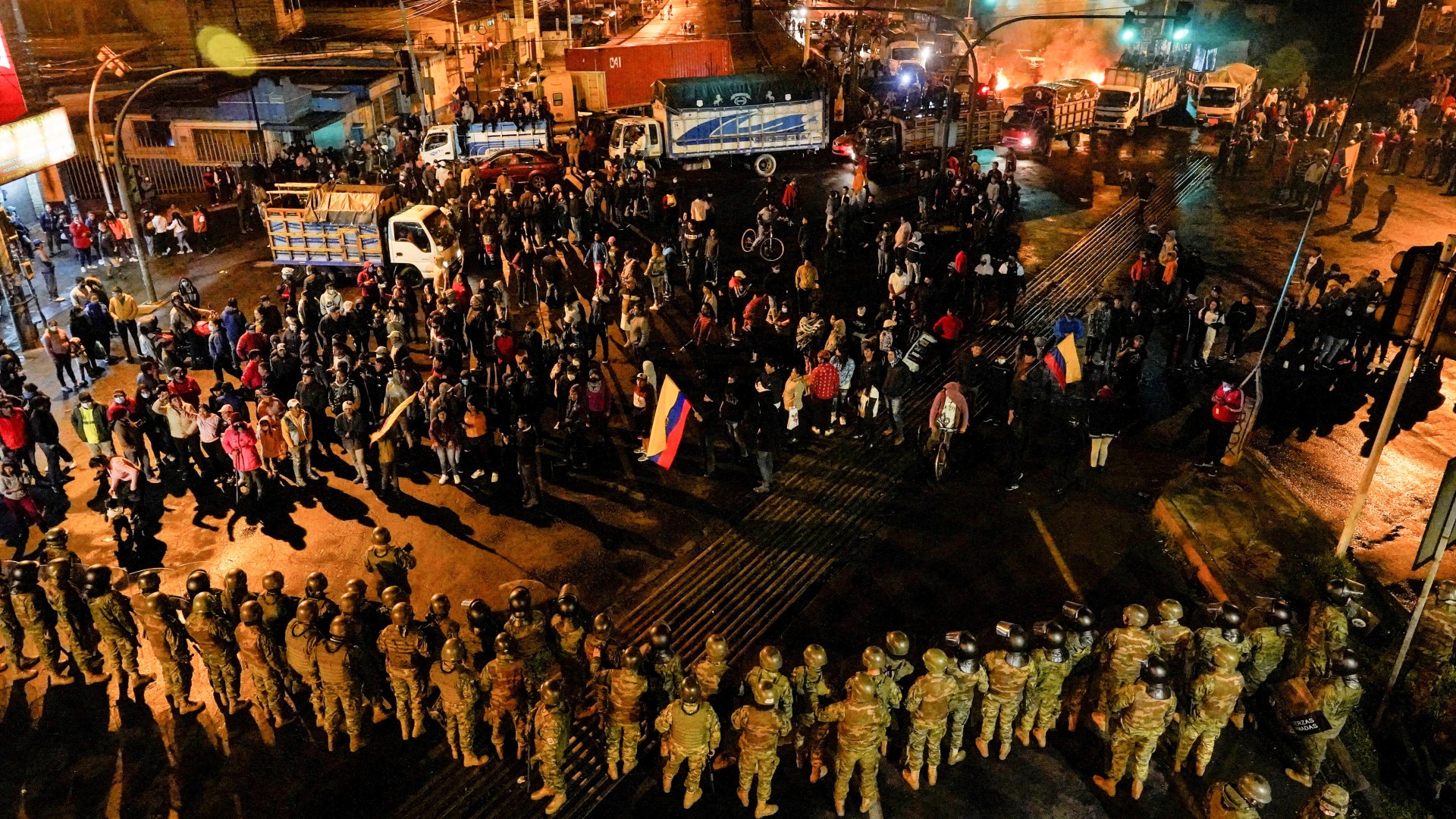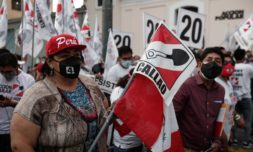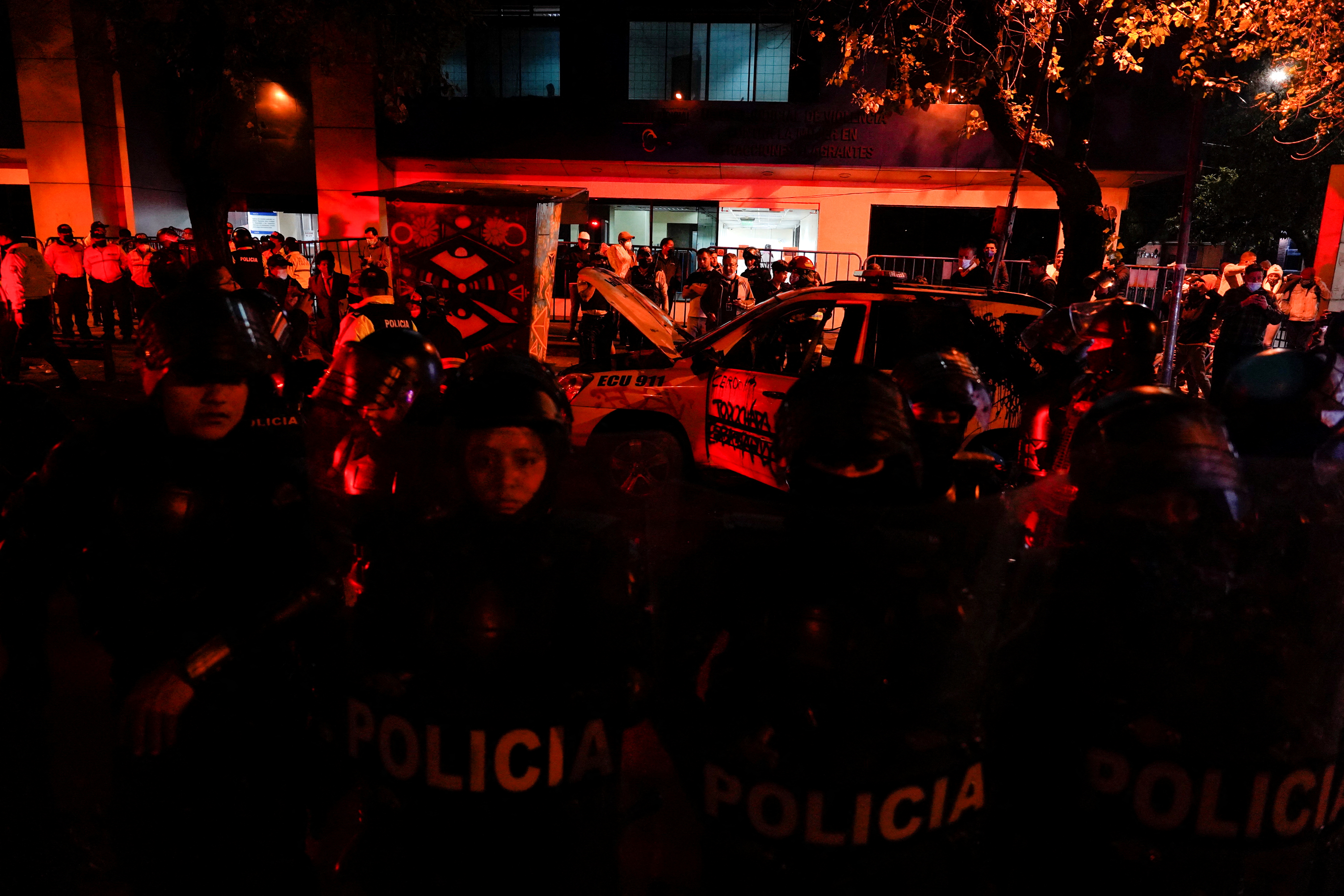Occasionally violent demonstrations against the government’s economic policies are ongoing, led by Indigenous groups now looking to overthrow President Guillermo Lasso.
Amid rising inflation and unemployment, Indigenous groups in Ecuador have defied a state of national emergency imposed in three provinces as they continue to protest the government’s economic policies.
The mass demonstrations demanding cheaper fuel and food are a response to rising poverty across the country, which has been exacerbated by the coronavirus pandemic.
‘This is a show of strength until the government listens,’ protestor Manuel Cocha told AFP.
‘We have to resort to resistance in view of the national government putting in place more and more policies of death, which don’t allow us to sustain our small economies.’
Like many of its Latin American neighbours, Ecuador is extremely vulnerable to changes in global commodity prices.
They were driven to leave the Organisation of Petroleum Exporting Countries in 2020 due to fiscal problems and since then, fuel prices have risen sharply, almost doubling for diesel from $1 per gallon and increasing from $1.75 to $2.55 for petrol.
This objection to the fact that poorer citizens are unable to afford the change, alongside built-up anger and frustration towards the sustained marginalisation of Ecuador’s Indigenous groups, is why the community – which makes up over one million of the country’s 17.7 million inhabitants – is still pressing on with demonstrations.
Against the efforts, that is, of President Guillermo Lasso, who on Sunday announced he would be enforcing a series of restrictive measures in a bid to end the conflict.
/cloudfront-us-east-2.images.arcpublishing.com/reuters/OCDJJ54EEZMFHCJT34YU5RGJM4.jpg)
Namely the mobilisation of Ecuador’s armed forces to maintain order, the suspension of civil rights, and a curfew from 10pm to 5am, all of which is due to last for 30 days in areas that have seen greater violence including Imbabura, Cotopaxi, Pichincha, and Quito.




















